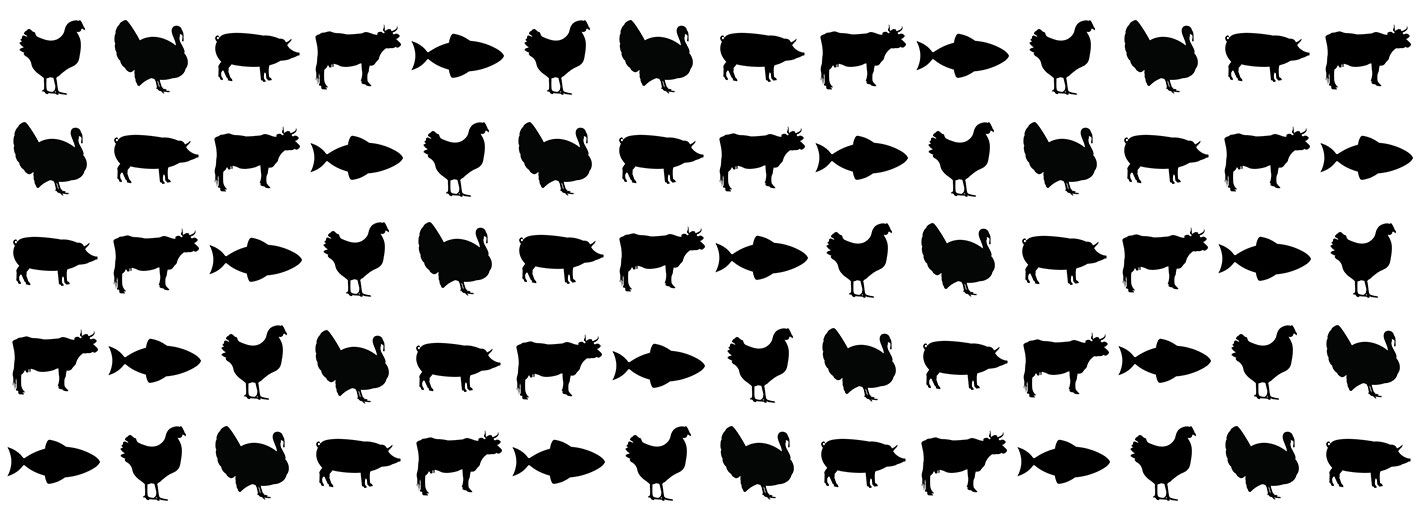
Bon Appétit Revamps Responsible Antibiotics Policy
The first food service company to take a stand on antibiotics, in 2003, announces new streamlined and comprehensive standards, to include seafood
Palo Alto, CA (Jan 23, 2019) — Much has changed since 2003, when Bon Appétit Management Company first took a stand on the animal agriculture industry’s routine abuse of antibiotics to promote faster-than-normal growth and to prevent disease in healthy animals.
Our companywide purchasing standard is to buy only meat, poultry, and seafood raised without the use of antimicrobials, except where necessary to treat sick animals in the documented presence of disease in the flock, herd, or fish population as verified by a veterinarian.
Things got worse. The rampant misuse of antibiotics, in both animals and humans, has created “superbugs” able to cause serious, often fatal infections in people — ones resistant to the available treatments. This crisis in public health resulted in pressure on meat producers from both consumers and big purchasers such as Bon Appétit, and finally, in belated regulation by the Food and Drug Administration. In recent years, many large producers have begun decreasing their dependence on antibiotics overall and begun offering products from animals never, ever given antibiotics (a.k.a. “no antibiotics, ever”). In a December 2018 report (PDF), the FDA says that sales and distribution of medically important antibiotics used in food production has fallen by 43% from 2015 (the year of peak sales) through 2017. That’s great news. It’s not yet time to declare victory, though.
In an effort to update our policy to align with state-of-the-art animal husbandry — and continue to push for improvements — Bon Appétit spent several months in consultation with the Center for a Livable Future, an independent group of experts led by Food System Policy Director Robert Martin at Johns Hopkins University. The goal was to harmonize what had become a patchwork of species-specific policies to represent best practices while taking into account the positive changes that have occurred in many areas of the marketplace. There’s still much work to be done — some of it in uncharted waters: Bon Appétit’s new policy encompasses seafood for the first time.
Bon Appétit Management Company’s Revised Antibiotics Policy, 2019
We are committed to supporting farms whose practices eliminate the need for routine antimicrobials. (“Antimicrobials” is a more comprehensive term for the class of drugs that includes antibiotics.) We believe strongly that good farm-animal health should rely on healthy living conditions for the animals, not drugs.
Our companywide purchasing standard is to buy only meat, poultry, and seafood raised without the use of antimicrobials, except where necessary to treat sick animals in the documented presence of disease in the flock, herd, or fish population as verified by a veterinarian.
This standard exceeds the World Health Organization’s most recent recommendations, which recommend restricting only those drugs important in human medicine. Although it may seem simpler, policy-wise, for us to have declared that we will buy only proteins raised without any antibiotics (by requiring the “never ever” standard that consumers are beginning to recognize), that approach unfairly penalizes some of our smaller farmers and ranchers. They want to be able to treat individual sick animals with appropriate medicines but do not always have the benefit of a secondary, “conventional” sales channel in which to sell a steer they’ve had to use antibiotics on, for example. (For more background about this dilemma, read Bon Appétit Chief Strategy and Brand Officer Maisie Ganzler’s op-ed for the Huffington Post.)
The new standard also applies to our seafood purchasing. The overuse of antibiotics in farmed seafood is a known and growing problem around the world, but there is currently very little oversight of it or widely accepted third-party certifiers responsible antibiotics use. Since 2003, Bon Appétit has adhered to the Monterey Bay Aquarium’s Seafood Watch sustainability guidelines, striving to purchase only Best Choice (green) and Good Alternative (yellow) rated seafood. Although Seafood Watch has begun measuring and flagging chemical use in farmed seafood as unsustainable, and the use of routine antibiotics can trigger a “red” chemical score, good practices in other areas of sustainability can override that score and boost the rating to yellow or green.
The seafood supply chain is not yet transparent enough to allow us to parse within specific rating subcategories for each fishery. With the exception of salmon, for which our companywide standard has long been wild-caught (and thus no antibiotics, ever), Bon Appétit’s seafood supply does not yet meet our new standard. This is an area in which we will continue to seek transparency and apply pressure.
“I have been concerned about the misuse of antibiotics for a long time, and serving on the Pew Commission on Industrial Farm Animal Production over a decade ago only increased my concern,” says Bon Appétit CEO Fedele Bauccio. “Although the industry appears to be slowly changing for the better, I believe we continue to have a responsibility to apply our purchasing power to support the kinds of practices that don’t harm the communities in which we operate, the environment, or public health. Our revised and expanded policy is another milestone toward that goal for us.”
Antibiotics Standard Report Card by Species at Bon Appétit
Bon Appétit’s new purchasing standard companywide is to buy only meat and poultry raised without the use of antimicrobials, except where necessary to treat sick animals in the documented presence of disease in the flock, herd, or fish population, as verified by a veterinarian. Here is where we are meeting this standard or exceeding it, and where we still have work to do.
| SPECIES | CONFORMANCE TO NEW STANDARD | DETAILS |
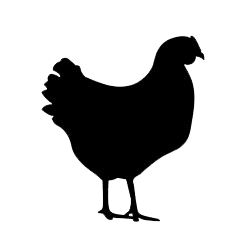 |
Meets or exceeds | Our contracted companywide chicken is from animals that have never received antibiotics. Regional mid-size and small Farm to Fork chicken may receive antibiotics to treat sick flocks, with documentation. |
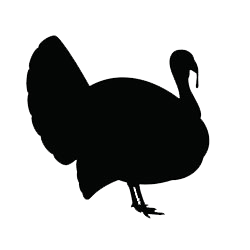 |
Meets | Our contracted companywide turkey is raised without routine antibiotics. |
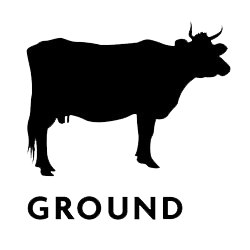 |
Exceeds | Our contracted companywide ground beef — the vast majority of beef we serve — is from animals that have never received antibiotics. |
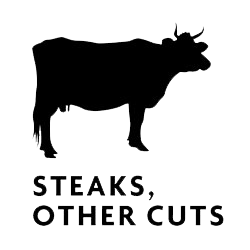 |
Not yet meets | We have no companywide contract for cuts of beef other than ground. |
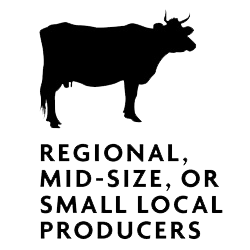 |
Exceeds or meets | Beef from our Farm to Fork regional mid-size producers must be certified by one of four credible animal welfare groups (which all prohibit nontherapeutic antibiotics) to be enrolled as vendors; small Farm to Fork producers must agree to meet or exceed this standard. |
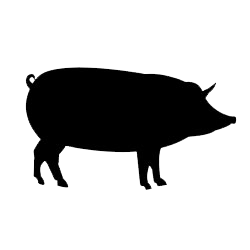 |
Exceeds | All of our contracted companywide pork is from animals that have never received antibiotics. |
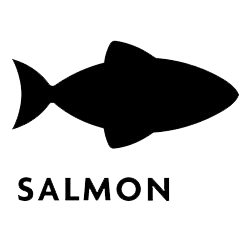 |
Exceeds | Bon Appétit’s longtime policy for salmon is to buy only wild-caught salmon, not farmed, so it receives no antibiotics. |
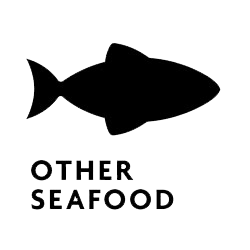 |
Not yet meets | Since 2002, Bon Appétit has followed Monterey Bay. Aquarium’s Seafood Watch sustainability guidelines, striving to purchase only Best Choice (green) and Good Alternative (yellow) rated seafood. Currently, both of those ratings can include farmed seafood that has been given antibiotics for nontherapeutic purposes. We have not yet identified farming operations at a large enough scale to meet our demands that also report on antibiotics use. |
Additional Information
Record-keeping requirements
Bon Appétit’s revised policy requires that the therapeutic use of antimicrobials must be accompanied by a Veterinarian-Client-Patient relationship and the maintenance of all pertinent veterinary records (VFDs, veterinary prescriptions) by the owner of the operation where animals are kept. In order to provide farmers who may have limited access to veterinary assistance with the means of treating animals, our recommendations do allow producers to use drugs for therapeutic purposes, provided that they maintain records detailing use.
If non-medically important antimicrobials are used for therapeutic purposes, Bon Appétit Management Company requests that the producer maintain records detailing use (a VFD, veterinary prescription, or report from the veterinarian) for two years. These records may be made available to Bon Appétit or a designated proxy upon request.
Definitions
Antimicrobials: An antimicrobial is a type of drug that kills or stops the growth of microbes, such as bacteria, viruses, fungi, and parasites (CDC).
Antibiotic: An antibiotic is a type of drug that kills or stops the growth of bacteria (CDC). All antibiotics are antimicrobials, but not all antimicrobials are antibiotics (FDA). Some organizations, such as the WHO, define antimicrobial synonymously with antibiotic; however, many organizations only use antibiotic.
Therapeutic use: The use of antimicrobials in food animals with diagnosed microbial diseases or known (documented) microbial disease exposure.
Nontherapeutic use: The use of antimicrobials in food animals in the absence of microbial disease or known (documented) microbial disease exposure.
Disease prevention: The administration of an antimicrobial drug to animals, none of which is exhibiting clinical signs of disease, in a situation where disease is likely to occur if the drug is not administered.
Disease control: The administration of an antimicrobial drug in some or all members of a flock or herd—when one or a few members have been diagnosed or have overt signs of disease—in order to stop the spread of disease.
Seafood: Is inclusive of all aquatic organisms, including freshwater fish and shellfish.
Veterinary-Client-Patient relationship (VCPr): A VCPr is a relationship in which a veterinarian has assumed the responsibility for making medical judgments regarding the health of an animal, the client or owner of the animal has agreed to follow the instructions of the veterinarian, the veterinarian has sufficient knowledge of the animal to initiate a general or preliminary diagnosis of the medical condition of the animal, and the veterinarian is available for follow-up in case of adverse reactions or failure of the therapy.
Veterinary Feed Directive (VFD): A VFD is an order issued by a licensed veterinarian for VFD drugs. VFD drugs are animal drugs, intended for use in or on animal feed, which require the supervision of a veterinarian. A VFD contains information on the instance of drug use, including the name and dose of the drug, the medical reason for use, information on the animal(s) to be treated, etc